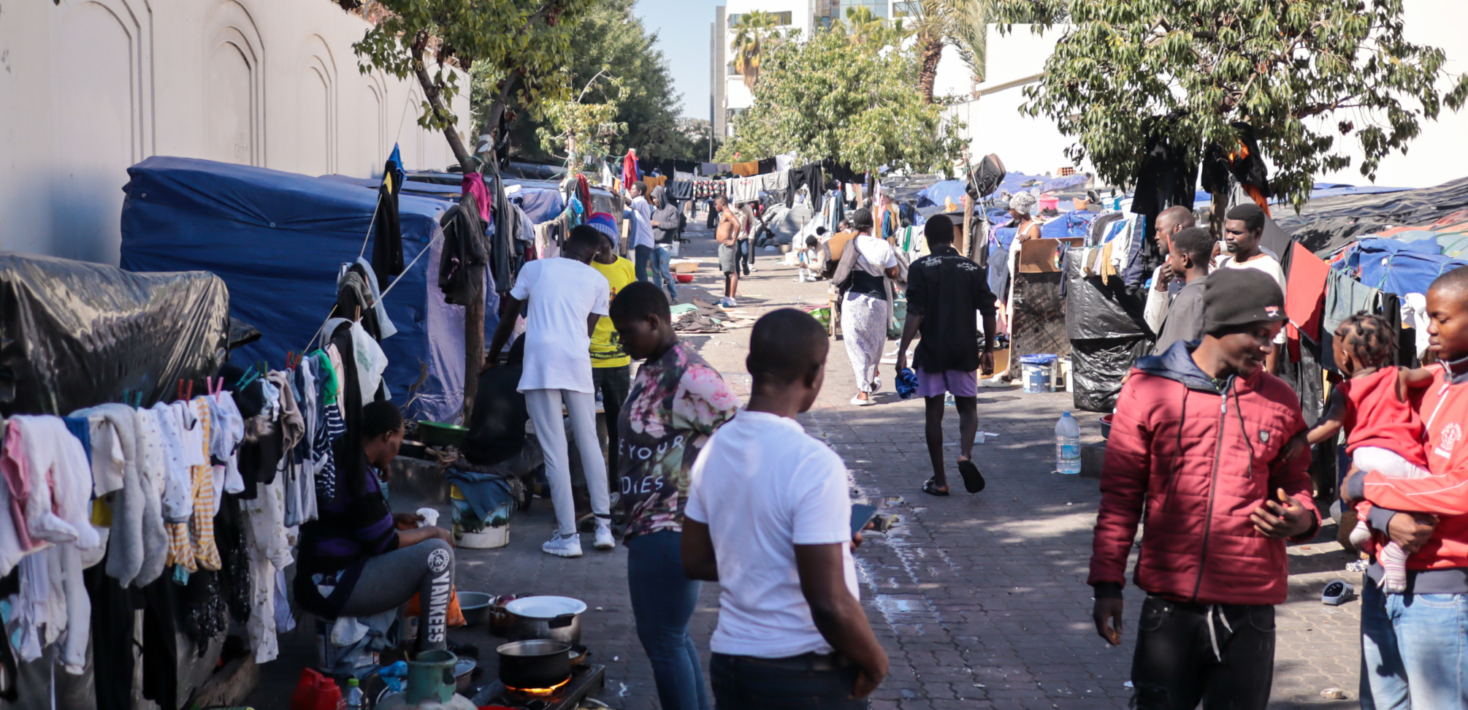In a concerning escalation, Tunisian authorities have launched an unprecedented repressive crackdown against migrants, refugees, human rights defenders, and journalists, according to Amnesty International. This offensive comes less than two weeks after a high-level meeting between Tunisia and Italy on migration management.
Over the past two weeks, Tunisian officials have arrested, summoned, and investigated the heads, former staff, or members of at least 12 organizations. These organizations face un-clear accusations, including "financial crimes" for providing aid to migrants. Among those targeted is a Tunisian organization that partners with the UN Refugee Agency (UNHCR) to support asylum seekers in the country's refugee status determination process.
Authorities have also arrested at least two journalists and referred them to trial for their independent reporting and comments in the media.
Simultaneously, security forces have intensified collective unlawful deportations of refu-gees and migrants, carried out multiple forced evictions, and arrested and convicted land-lords for renting apartments to migrants without permits.
"Tunisia's authorities have stepped up their malicious crackdown against civil society or-ganizations working on migrants and refugee rights using misleading claims about their work and harassing and prosecuting NGO workers, lawyers and journalists," said Heba Morayef, Amnesty International's Regional Director for the Middle East and North Africa. "A smear campaign online and in the media, supported by the Tunisian President himself, has put refugees and migrants in the country at risk. It also undermines the work of civil society groups and sends a chilling message to all critical voices."
The crackdown targets include the Tunisian Council for Refugees (CTR), whose head and deputy head were arrested and ordered into pretrial detention for allegedly "forming a crim-inal alliance with the intention of helping a person to enter Tunisian territory without travel documents." Authorities have also launched an investigation against "a group of associa-tions and organizations" accused of "abusing their mandate to provide financial support to 'illegal immigrants.'"
On May 8, human rights defender Saadia Mosbah, head of the anti-racist organization Mnemty, which provides support to refugees and migrants, was arrested and detained pend-ing investigation into "financial crimes" related to the organization's funding.
This crackdown coincides with President Kais Saied's inflammatory remarks during a Na-tional Security Council meeting on May 6, where he attacked civil society organizations, describing them as "traitors," "[foreign] agents," and "rabid trumpets driven by foreign wages" due to their receipt of foreign funding and criticism of the state.
Tunisian security forces have also escalated collective unlawful deportations and forced evictions targeting migrants and refugees, including children, pregnant women, and UN-HCR-registered asylum seekers. On May 3, hundreds were evicted from a public park near the IOM and UNHCR offices in Tunis, with security forces using teargas, tasers, and physi-cal violence against them, including children.
"Tunisia's authorities are carrying out arbitrary collective unlawful deportations without due process or individual protection assessments in flagrant violation of international law. They must immediately halt these expulsions and ensure the rights of all refugees and migrants, including children, are protected at all times," said Morayef.
Authorities have also arrested and imprisoned individuals for housing undocumented peo-ple, while journalists and lawyers have been arrested and charged for their critical com-ments and reporting on the situation.
"Tunisian authorities must urgently reverse this significant backsliding on human rights. They must cease this judicial harassment and release all those detained solely for the exer-cise of their freedom of expression and freedom of association. People should have the freedom to express themselves without fear of reprisal," said Morayef.
The crackdown raises concerns about Tunisia's cooperation with the European Union on migration management, as the EU recently signed a Memorandum of Understanding with Tunisia, providing financial support and technical assistance for border management amid the country's economic crisis.









